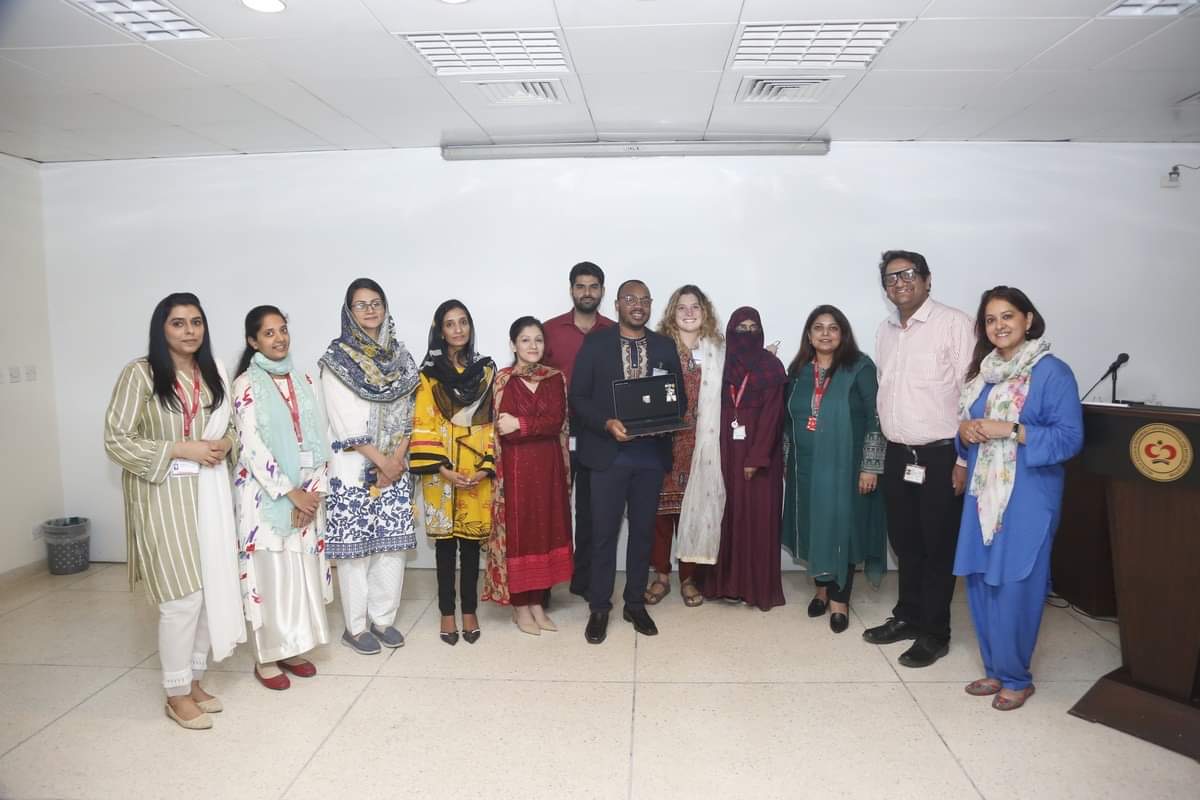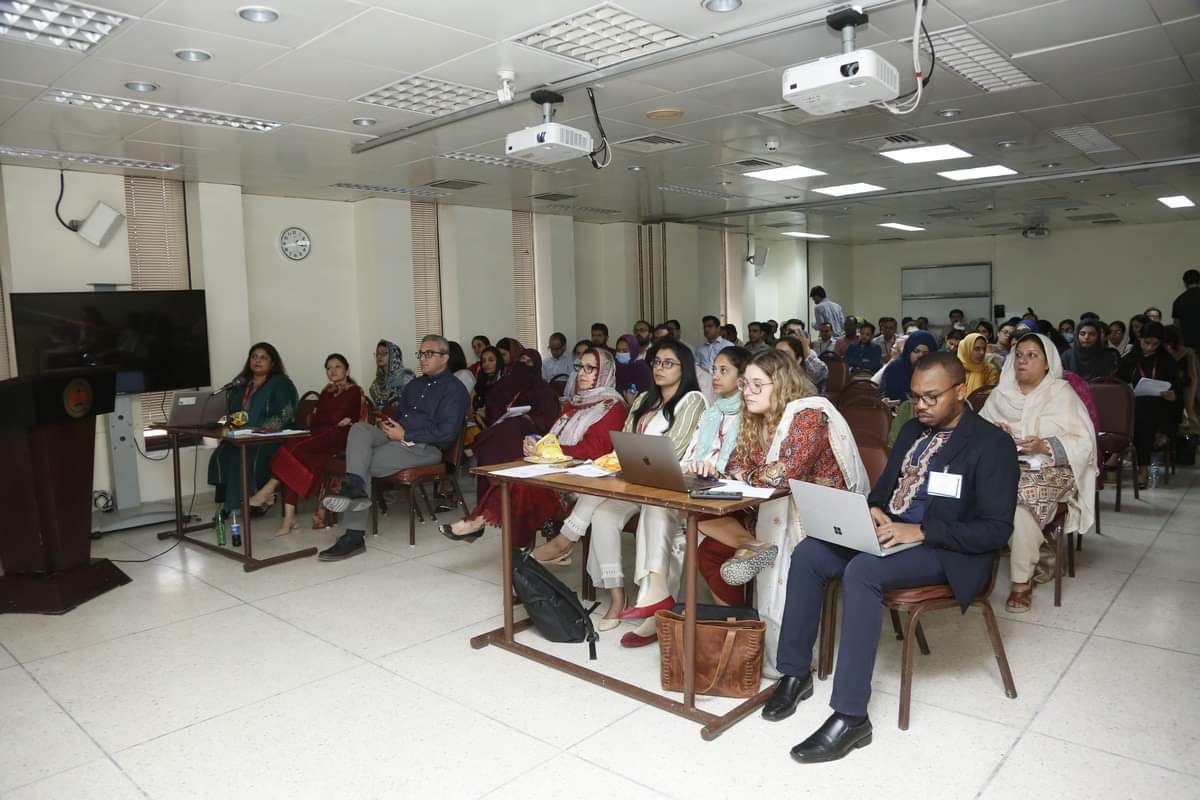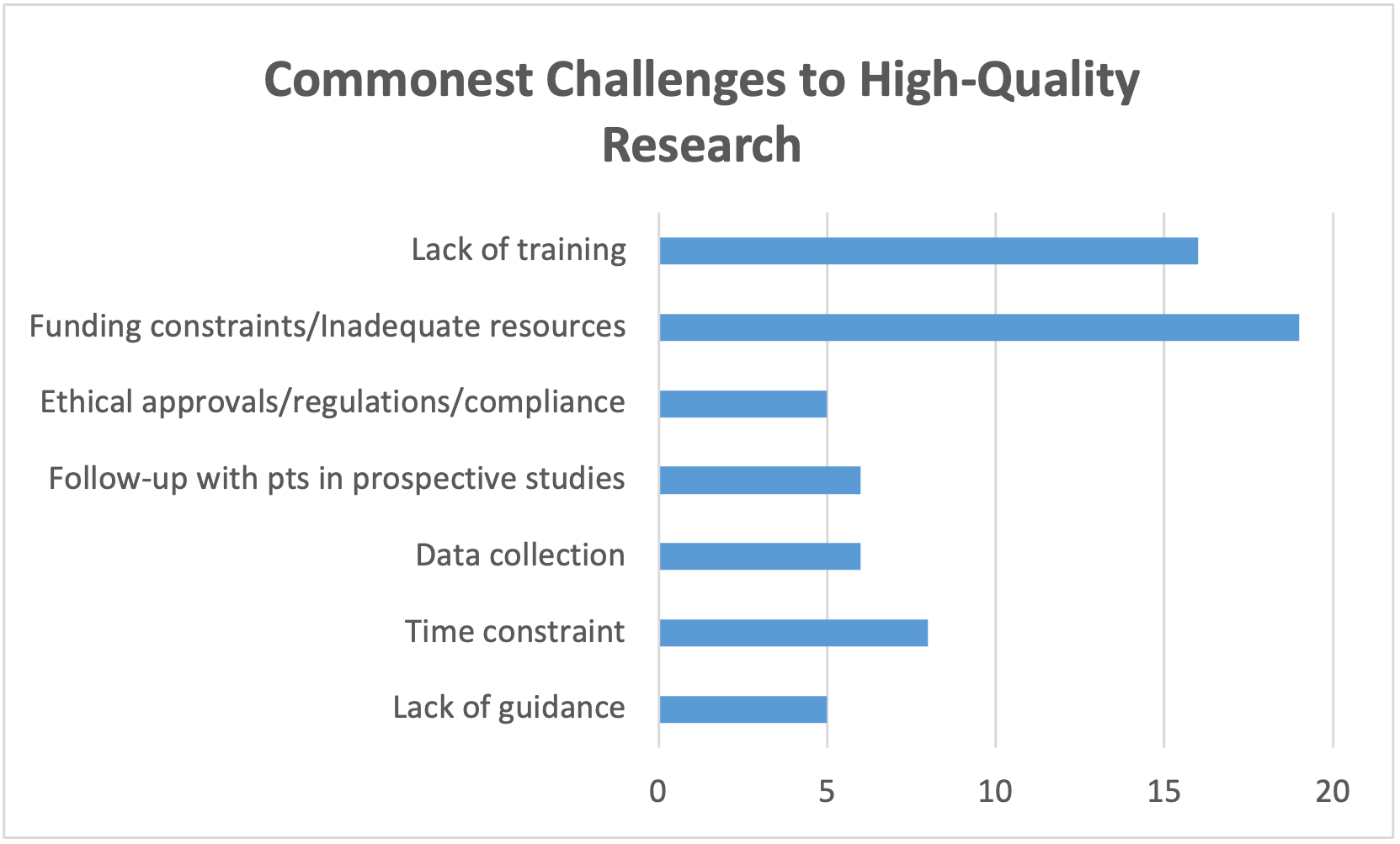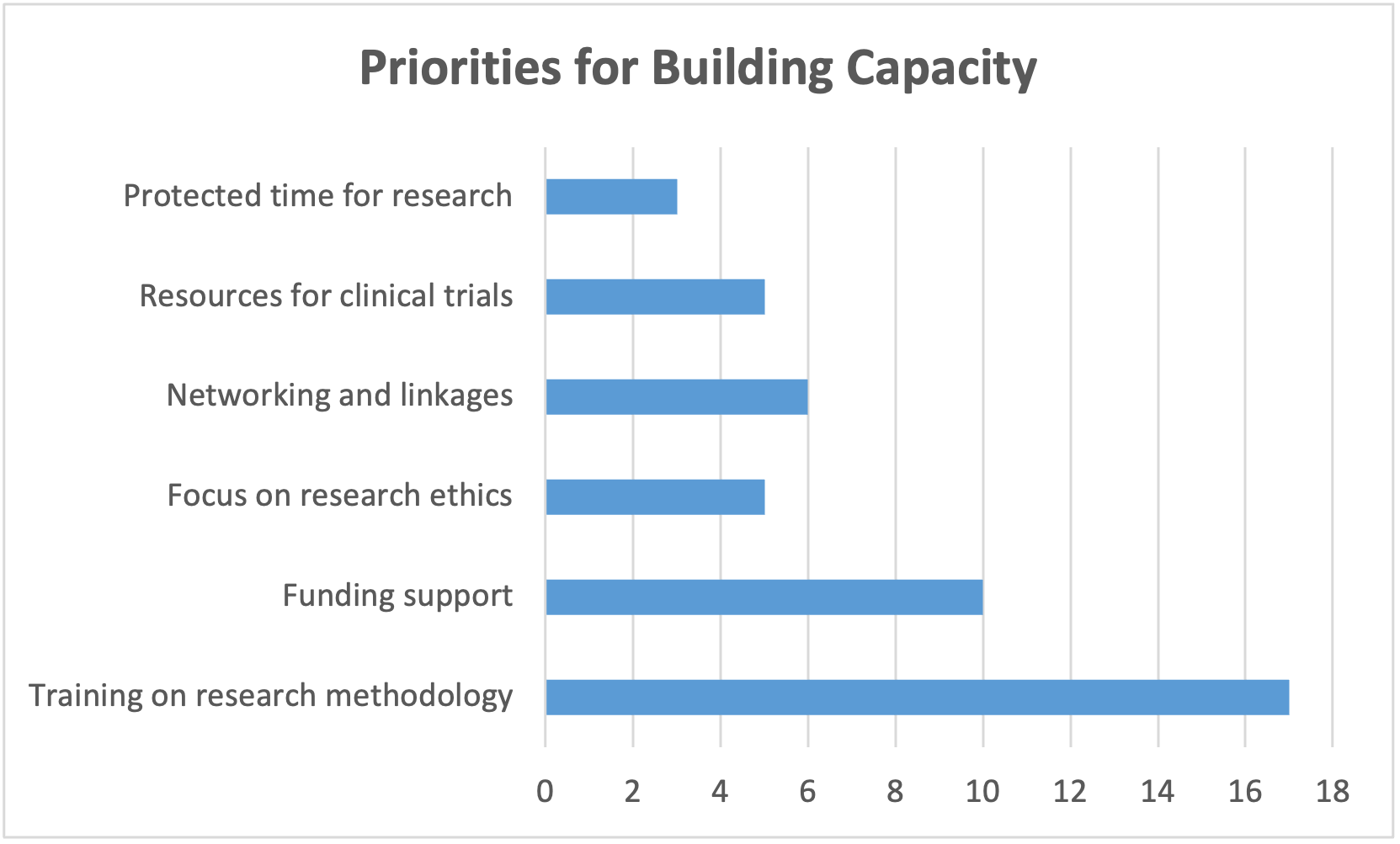

Launch & Networking Event
Shaukat Khanum Memorial Cancer Hospital & Research Centre (SKMCH&RC), Lahore
Monday 7th Nov 2022

The Global Health Network (TGHN) is partnering with Shaukat Khanum Memorial Cancer Hospital and Research Centres to collaboratively work towards enabling research in every healthcare setting by sharing knowledge and methods.
SKMCH&RC are state-of-the-art non-profit cancer treatment and research centres located in Pakistan and the only dedicated cancer treatment network in the country. Research is part of the hospital’s mission statement, and the hospital provides dedicated resources and infrastructure for basic, epidemiological and clinical research into the causes and treatment of cancer, since its inception in 1994, leading to high output in the field of health research within Pakistan.
Pakistan is a middle-income country with low investment in health, resulting in a complex and fragmented health system. Pakistan faces several social, economic, political, and cross-border challenges compounded by natural catastrophes. Despite the health indicators of Pakistan having shown improvement in the last 25 years, health research still shows a big gap. Research is often conducted in silos, seldom relevant to local needs, and is of variable quality, because of limited capacity and resources. This is further compounded by the disconnect between researchers, implementers, and policy makers. Thus, the team at SKMCH&RC and TGHN are initiating a collaboration to work on health research capacity building in Pakistan in order to bridge these gaps.
A meeting was held to announce this joint effort and to invite relevant stakeholders to join in this initiative. Investigators, co-investigators including physicians, surgeons, residents, fellows in training, epidemiologists, research officers, members from contract research organizations, bioethicists, members of local and national ERCs and research administrators attended the meeting, held in a hybrid format.
Panelists
|
Dr. Mariam Hassan (Clinical Research Administrator SKMCH&RC) welcomed the attendees and shared the agenda |
|
Dr. Trudie Lang (Director, TGHN) introduced the audience with the extensive work done by TGHN and announced formal collaboration with SKMCH&RC. |
|
Dr. Asif Loya (Mediacl Director SKMCH&RC) shared his thoughts on working together with TGHN and emphasized on the need of this collaboration |
|
Dr. Salvia Zeeshan (Asia Regional Manager, TGHN) shared her experience of working with other regions of the world in developing the knowledge hubs and plans for research capacity strengthening work in Pakistan |
|
Dr. Farah Asif (Clinical Research Administrator SKMCH&RC) shared experience of Pakistan Research Ethics Review Framework |
The meeting was attended by 18 online and 110 in-person participants.

Apart from Shaukat Khanum Memorial Cancer Hospital & Research Centre, Lahore, participants were from PIMS, Dr. Ziauddin Hospital, Karachi, Bangor University, Centre of Biomedical Ethics and Culture, among other institutions. Some of the roles that attendees held in their institutions were of Study Coordinator, Research Ethicist, Principal Investigator and Basic Science Researcher.
Group discussion was carried out amongst the audience and the team on needs assessment for health research capacity in Pakistan. Drs Mercedes Rumi and Frank Kagoro from TGHN, were present at the event and they presented findings from the needs assessments conducted and shared The Global Health Network’s teams’ encounters with similar gaps and solutions in Latin America and Africa.
Topics
The topics discussed and areas of continued work that were identified in the meeting are summarised below.
1. Introduction and Health Research Context and Challenges in Pakistan
Mariam Hassan initiated the session and shared the agenda, followed by an introduction of the health and research context of Pakistan and challenges for conducting high quality health research in the country. Several key issues were addressed including: Research prioritization as per local needs; infrastructure; funding; human resource & capacity; governance; paucity of robust research networks; equitable research partnerships and local research leadership; impact of research on policy and practice.
The proposed collaboration would address these gaps to:
- Upskill the workforce through various educational and career development initiatives
- Understand the barriers and enablers of strengthening the research capacity with recommendations to address them
- Increase partnerships between LMICs for health (especially cancer) research by connecting excellence
2. The Global Health Network to address health research inequity
Prof. Trudie Lang introduced The Global Health Network and summarised challenges for health research across LMICs:
- Few research studies are being done in global south. The 10-90 gap
- Need for thriving health ecosystems in research
- Understanding the importance of communication to mitigate the impact of disease
TGHN is a vast community of practice which aims to embed research in every healthcare setting, with more than a decade of experience.
TGHN’s aim is to build research capacity and develop partnerships based on equity in a franchised decentralised model. Using this similar federated operational model, TGHN can support and work together with the teams in Pakistan on:
- Supporting learning sessions
- Virtual and face to face trainings
- Discussion on multiple topics with experts from all around the globe
- Build communities of practice around specific specialized area e.g. cancer research
The Global Health Network’s impact is to build long lasting research teams, equity and visibility in research. The research process should start with setting the right question, developing the protocol, planning safe operations, community engagement and data management and analysis.
What The Global Health Network has developed in the past years can be used by researchers and through collaborations it can be moved move forward at a global level.
3. Announcement of collaboration
Dr. Asif Loya welcomed TGHN team and formally announced our intent to work together on health research capacity building in Pakistan.
4. The Global Health Network Asia and Pakistan chapter
Dr. Salvia Zeeshan introduced the regional hubs that work in knowledge sharing in the regions of Africa , Asia , and Latin America and the Carribeans. For the Asia knowledge hub , the coordinating centres are hosted by research institutes in the countries of Bangladesh, Pakistan, India, Nepal and Sri Lanka. Through the learning programmess, long lasting networks, collaborations and career development for researchers, increased capacity and a culture of research can be developed.
The Global Health Network Training Centre’s e-learning courses can be utilised in supported learning sessions for training in general and specific research skills. Research Clubs are planned in institutes and hospitals for participants to share progress on their research projects and the challenges being faced. The opportunities for funding, grants and collaborations were also discussed. Workshops, toolkits, resources, protocols and SOPs can be shared by anyone. The documents will be assigned a DOI so credit will be given to the authors.
5. Ethics review in Pakistan: Challenges
Dr. Farah Asif informed that in the beginning in the first half of 2020, leading experts in ethics review in Pakistan and from the international community came together in a project titled ‘Developing Policy Recommendations for Pakistan’s Ethics Review Framework and IRBs in Support of Public Health Emergency Preparedness and Response’. The aim of this project was to review the Pakistan’s current system of ethics review, from the national level through the provinces and including the local institutional level.
in depth inquiry of the local context and current structures and practices as well as the manner in which the NBC-REC and local IRBs responded to the pressures of COVID-19, was done. Evidence was collected via a series of workshops, scoping review of literature, and capacity mapping of IRBs with the support of The Global Health Network and Good Clinical Practice Alliance – Europe (GCPA) and Strategic Initiative for Developing Capacity in Ethical Review (SIDCER). It analysed to identify key insights, and evidence based recommendations to develop policy and guidance were made. Action on these recommendations can be used to create an operational framework for a national and local approach to ethics review during a public health emergency, aiming to strengthen the preparedness and response to any future PHE.
6. Registration Results
|
Commonest challenges for doing high-quality research in Pakistan as reported by the participants |
Top priority areas to address to build capacity for doing high quality research as reported by the participants |
Group Discussion and Results
|
Research outcomes can be improved through:
|
|
Identified challenges:
|
|
Needs that were identified:
|
|
Top priority areas:
|
|
Other priority areas that need to be addressed:
|
|
Involvement in future hub activities: 100% of the meeting participants expressed an interest in being involved in future activities. |

